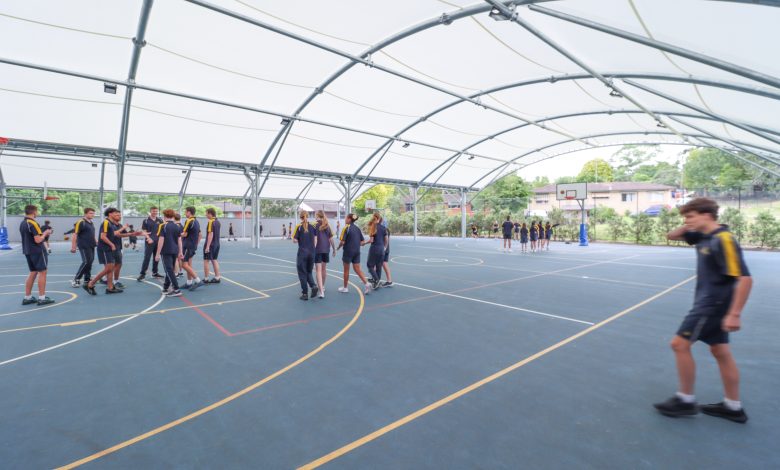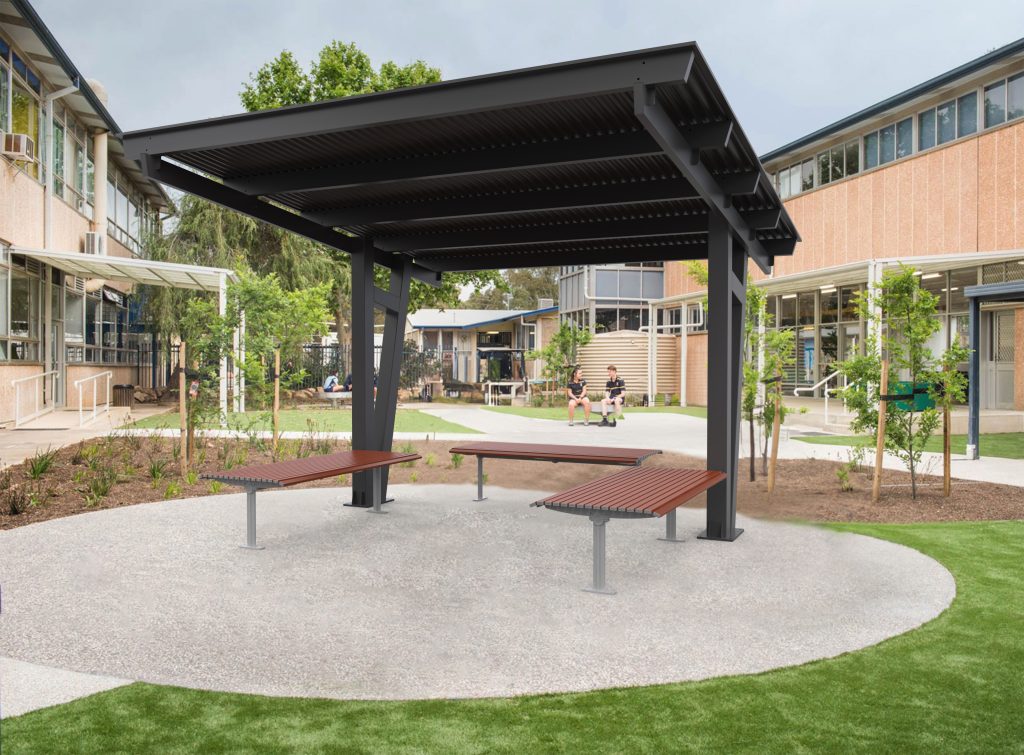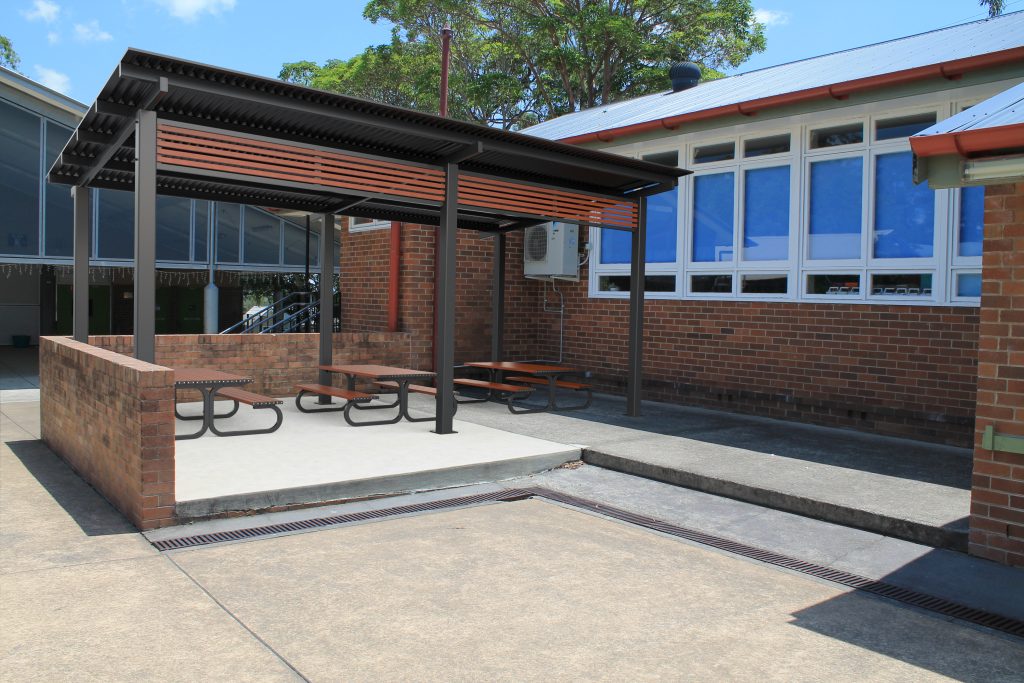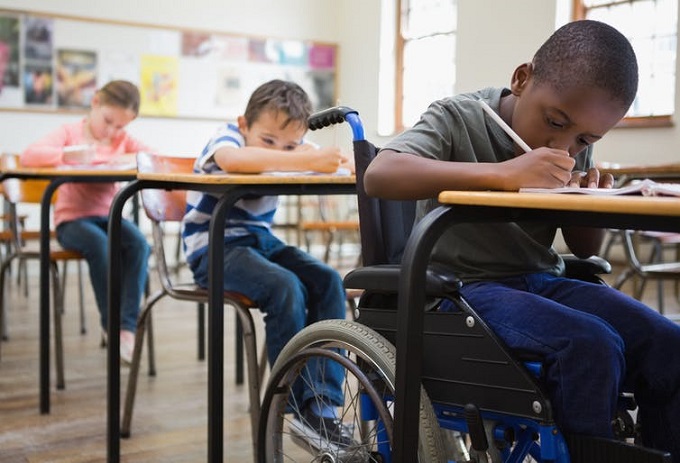Maximising learning space with shade solutions
With classroom space often at a premium in schools, shaded areas in the great outdoors may provide a solution

Green spaces are a critical part of a school’s infrastructure, and are often underutilised. Moving teaching and learning outdoors can provide extra space without costly and time-consuming building projects. Installing shade solutions ensures covered outdoor learning spaces are useable year-round.
Read the latest print edition of School News HERE
Sun safety with shade systems
Children need some sunlight each day to help with the production of vitamin D, which is essential for things like strong bones and muscles. In Australia, though, a healthy dose of sunlight may be as little as a few minutes, and two- or three-hours during cooler or overcast conditions. Too much sun can be dangerous, and can lead to skin damage, eye damage, sunburn, skin cancer and a weakened immune system.
Schools, then, must provide sufficient shade for students to protect students while outside of their classroom. This will include space for students to utilise during lunch breaks, and while walking between classrooms. Protection should be offered from the rain and wind, as well as the sun. Consideration should also be given to the shading of playground equipment, and sports courts.
Shade for every situation
Shade structures are versatile, and can be adapted to a range of applications. Moving a class outdoors, hosting large gatherings including summer assemblies and school market days, and creating covered outdoor space adjoined to the staffroom can all be achieved with the addition of shade structures.
Other practical applications include the protection of school bag storage and locker areas, creating a sheltered bus or pick up area, or using the additional roof space to catch water for use in school gardens.
A sheltered outdoor space can give students a break from the classroom, encourage them to move around, help them to enjoy some fresh air and sunlight, and boost overall mood.

Covered outdoor learning environments can incorporate play activities like sandpits and loose parts nature play, tables and chairs and floor seating, as well as whiteboards, projectors, and other AV equipment. These features may prove particularly useful to occupy students on very hot days, or when it is raining or very windy.
Senior schools might use outdoor areas for woodworking and welding, while junior students might move to covered outdoor learning spaces for arts and crafts, and messy play. Protecting items in these spaces, as well as staff and students, from the elements is important, and shade structures provide an ideal solution.
Shade structures, including canopies and sails, are available in a range of sizes, colours, and materials. Design can be tailored to suit your school’s needs, with consideration of the size of the area, and what the space will be used for. The need for amenities like power, lighting and PA systems should also be addressed when planning your outdoor learning area.
From those in the know
Alastair Morris from MakMax said there are myriad options for shading in school, with different structures to suit different applications.
“Simple shade-mesh style structures are low-cost and flexible in design, needing only some posts in the ground or a building to attach a rigging screw to. A simple shade mesh can be used for providing some shade over playground equipment, however, a shade sail may not last the test of time when compared to a fully engineered shade structure,” Mr Morris said.

“Choosing a strong, safe and stylish engineered shade structure can provide more permanent and architecturally attractive shading elements. Choose a high-quality architectural umbrella to provide a shady lunch spot in the playground or for a weatherproof covered outdoor learning area, a curved roof fabric COLA can be engineered to fit any square or rectangular playground space.
“For larger shaded areas, schools are frequently opting to protect students playing sports with a sports-court roof. Capable of covering one, two or even three basketball court-sized playing areas, a lightweight fabric sports court roof can span large distances and can accommodate multiple sports under the protective canopy.”
Mr Morris highlighted the customisable features of shade solutions. “For schools with a strong architectural vision, a bespoke fabric shade structure can lead to some truly exciting learning spaces. Lighting, large screen displays, and PA systems can be integrated into these spaces, providing connectivity for the school population, offering a weather protected area for the school to live-stream full school assemblies.”
Lindsay Stead from Astra Street Furniture said to get the most out of school shade structures, it is important to properly plan and design these structures for optimal protection.
“The location and weather conditions are important considerations. If you are in an area that normally experiences extreme heat or heavy rainfall, choose a shade structure that is durable and weather-resistant, otherwise you will have problems maintaining the shade structure. Australian made aluminium structures are maintenance-free and suit all environments.”

“Shade structures provide safety from the elements including protection from sunburn and heat stroke, storms and falling branches. Ensure that support systems do not pose safety hazards. It is a good idea to make them clearly visible and if located adjacent to sports courts, the uprights should be padded.”
Mr Stead said that while the design of shade structures is often selected based on aesthetics, there are some functional differences that suit different applications.
“Corner post shelters are a good all-rounder to suit most general applications. Cantilevered shelters are preferred for locations needing easier access, where front posts may be in the way for vehicles or pedestrian traffic, obscuring visibility or if large fixtures under the shelter need extra space around them. Shade sails and large structures are best suited to broad areas of cover, especially if they need to fit an irregularly shaped area.”







